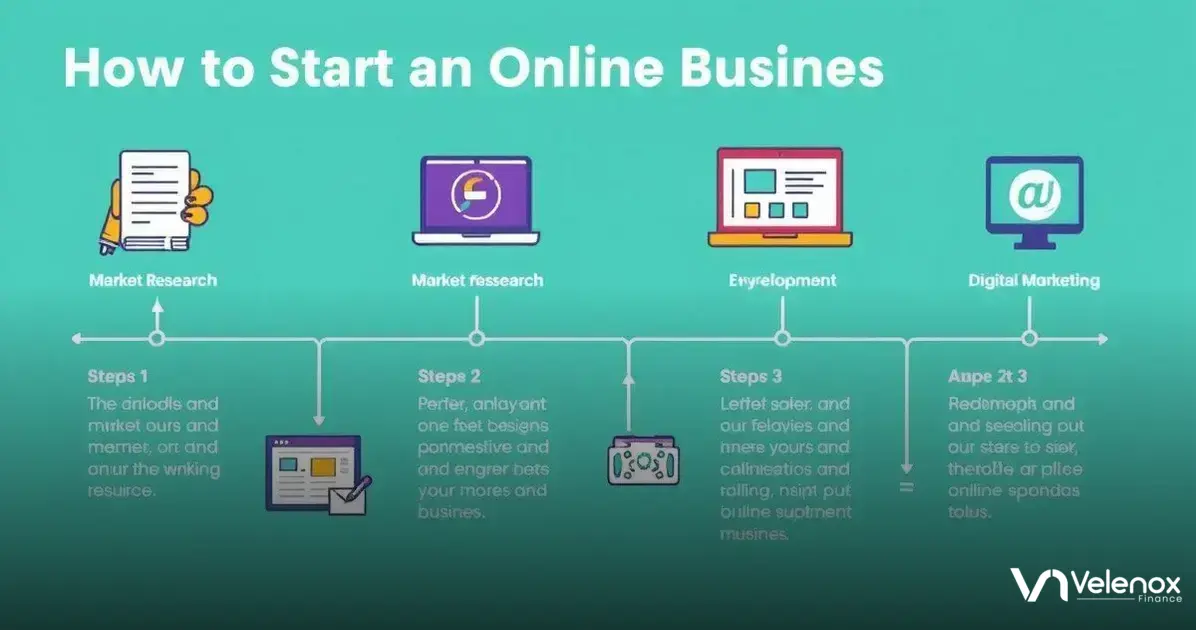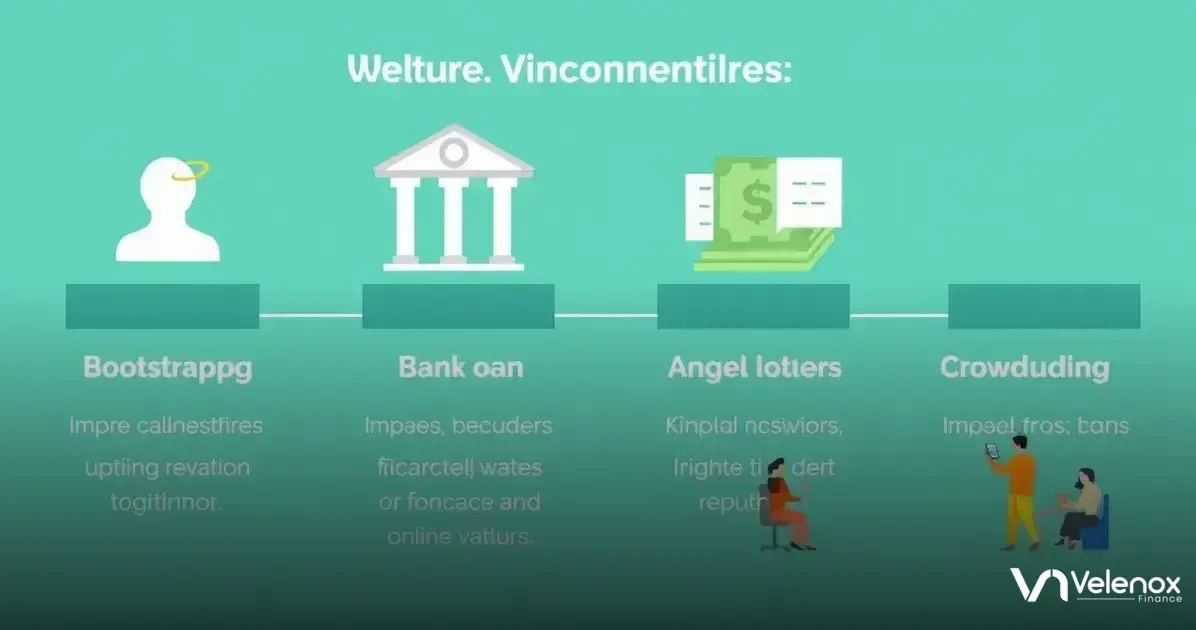To succeed in online business in 2025, it’s important to focus on innovative ideas and embrace effective marketing strategies.
Additionally, utilizing essential tools, securing appropriate financing, and avoiding common pitfalls can greatly enhance your chances of success.
Staying informed about trends will significantly enhance your chances of building a successful digital venture.
Are you ready to explore how Online business ideas 2025 can shape your future?
As we move into a new era of digital entrepreneurship, the landscape is transforming rapidly.
With innovative technology and evolving consumer behaviors, now is the perfect time to dive into the world of online business.
Emerging Trends in Online Business for 2025
As we look towards 2025, various emerging trends in online business are set to reshape the entrepreneurial landscape.
Staying abreast of these trends is crucial for aspiring and existing business owners. Here are some noteworthy developments to consider:
1. Rise of E-commerce Marketplaces
More entrepreneurs are shifting towards e-commerce marketplaces rather than building standalone websites.
This trend simplifies customer access and enhances visibility through established platforms.
2. Integration of Artificial Intelligence
AI tools will play a significant role in personalizing customer experiences, optimizing pricing strategies, and improving inventory management.
Businesses leveraging AI can gain a substantial competitive edge.
3. Subscription-Based Services
The subscription model is gaining traction across various industries, from software to food deliveries.
This model provides consistent revenue and fosters customer loyalty.
4. Sustainability and Eco-Friendly Practices
More consumers are drawn to businesses that prioritize sustainability.
Companies that adopt eco-friendly practices can attract a loyal customer base while contributing positively to the environment.
5. Remote Work Opportunities
The growth of remote work has opened doors for online business owners.
Companies can now access global talent, reduce overhead costs, and adapt to flexible work arrangements.
6. Social Media Shopping
Social media platforms are evolving into powerful sales channels.
Businesses are creating shoppable posts and utilizing influencer marketing, making social media integral to their marketing strategies.
7. Enhanced Cybersecurity Measures
With the increase in online transactions, investing in robust cybersecurity measures is critical.
Consumers expect their data to be protected, making it essential for businesses to prioritize security.
By understanding these emerging trends, entrepreneurs can harness new opportunities and adapt their strategies for success in the ever-evolving online business landscape.
Top 5 Online Business Ideas to Consider
If you’re looking to start an online business, consider these top 5 online business ideas for 2025.
Each idea leverages current trends and technologies to create exciting opportunities for entrepreneurs.
1. E-Commerce Store
Launching an e-commerce store allows you to sell products directly to consumers.
You can choose to sell niche products, handmade goods, or dropship from suppliers, minimizing upfront costs.
2. Online Courses and Coaching
With online education on the rise, creating and selling online courses or offering coaching services can be profitable.
You can share your expertise in various fields, from business to fitness.
3. Subscription Box Services
Subscription box services are becoming increasingly popular.
These services deliver curated collections of products to customers monthly, appealing to unique interests like health, hobbies, or gourmet foods.
4. Digital Marketing Agency
As businesses shift online, they need help with digital marketing.
Starting a digital marketing agency can be lucrative, delivering services such as SEO, social media management, and content creation.
5. Virtual Assistant Services
Many entrepreneurs and small businesses require help with administrative tasks.
Offering virtual assistant services is a great way to help them manage their workload while working from home.
These online business ideas align with emerging trends, offering opportunities that are relevant and timely.
They also allow for flexibility and scalability, making them strong options to consider as you plan your entrepreneurial journey.
How to Start an Online Business in 2025

Starting an online business in 2025 requires careful planning and execution.
Follow these steps to set the foundation for your entrepreneurial journey.
1. Identify Your Niche
Begin by exploring market needs and your passions.
Finding a niche that aligns with your interests can increase your motivation and customer engagement.
2. Conduct Market Research
Understanding the competition and potential customers is vital.
Use surveys, interviews, and online tools to gather insights about your target market’s preferences and behaviors.
3. Create a Business Plan
A solid business plan outlines your goals, target audience, and financial projections.
It serves as a roadmap that guides your business decisions and helps attract investors.
4. Choose a Business Model
Decide how you will deliver your products or services. Options include e-commerce, subscription services, or digital content.
Your choice should align with market demand and your expertise.
5. Build Your Online Presence
Develop a professional website that reflects your brand. Utilize social media platforms to reach potential customers. Consider SEO strategies to enhance visibility.
6. Set Up Payment and Shipping
Choose reliable payment processors to handle transactions securely. If you are selling physical products, research cost-effective shipping options.
7. Launch and Promote Your Business
Once everything is in place, launch your business!
Utilize online marketing strategies such as email newsletters, social media ads, and influencer partnerships to promote your brand.
By following these steps, you can smoothly navigate the process of starting an online business in 2025 and set yourself up for success.
Essential Tools for Online Business Success
To succeed in the competitive landscape of online business in 2025, utilizing the right tools is essential.
Here’s a list of essential tools for online business success that every entrepreneur should consider.
1. Website Builders
Website builders like Wix or Squarespace streamline the process of creating a professional-looking website without needing coding skills.
These tools offer customizable templates and drag-and-drop features.
2. E-commerce Platforms
Platforms such as Shopify or WooCommerce provide robust solutions for setting up online stores.
They include features like payment processing, inventory management, and shipping integrations.
3. Customer Relationship Management (CRM) Software
CRM tools like HubSpot or Salesforce help businesses manage customer interactions and relationships.
They streamline communication, track sales, and analyze data to improve customer service.
4. Email Marketing Services
Email marketing platforms like Mailchimp or Constant Contact help businesses connect with their audience effectively.
They offer tools for sending newsletters, running promotional campaigns, and setting up automated email sequences.
5. Social Media Management Tools
Tools such as Hootsuite or Buffer allow businesses to manage multiple social media accounts.
They help schedule posts, analyze performance, and engage with the audience, saving time and improving outreach.
6. Analytics Tools
Analytics platforms like Google Analytics provide insights into website traffic and user behavior.
By understanding these metrics, businesses can make informed decisions and improve their strategies.
7. Project Management Tools
Tools such as Trello or Asana assist teams in organizing tasks, setting deadlines, and collaborating efficiently.
These tools enhance productivity and ensure that projects stay on track.
By leveraging these essential tools, online business owners can streamline operations, enhance customer engagement, and ultimately drive growth.
Marketing Strategies for Online Businesses in 2025
In 2025, successful online businesses will need to implement effective marketing strategies to thrive in a competitive market.
Here are key strategies to consider.
1. Leverage Social Media Advertising
Social media platforms like Facebook and Instagram offer powerful advertising tools.
Utilize targeted ads to reach specific audiences based on their interests, demographics, and behaviors.
2. Content Marketing
Creating valuable and informative content can build trust and attract customers.
This includes blog posts, videos, and infographics that resonate with your target audience.
3. Influencer Partnerships
Collaborate with influencers in your niche to tap into their established audiences.
Influencers can promote your products authentically, enhancing brand visibility and credibility.
4. Search Engine Optimization (SEO)
Optimizing your website for search engines is crucial.
Focus on relevant keywords, meta descriptions, and high-quality backlinks to improve organic search rankings and draw traffic.
5. Email Marketing Campaigns
Email marketing remains a powerful tool for nurturing relationships with customers.
Create engaging newsletters and personalized offers to increase conversion rates.
6. Video Marketing
Incorporating video into your marketing strategy can significantly boost engagement.
Use platforms like YouTube to showcase product demonstrations, tutorials, or customer testimonials.
7. Data Analytics and Performance Tracking
Utilize analytics tools to measure and analyze your marketing efforts. Understanding metrics can help refine strategies and improve ROI.
Implementing these marketing strategies will position online businesses for success in 2025, enabling them to connect with customers more effectively.
Financing Options for Online Ventures

Financing your online venture is crucial for success. Understanding your options can help you secure the funds necessary to start and grow your business.
Here are some key financing options for online ventures to consider.
1. Bootstrapping
Using your own savings to fund your business is known as bootstrapping.
This method allows you to retain full control over your venture without incurring debt or giving away equity.
2. Bank Loans
Traditional bank loans can provide significant funding for your online business. However, banks usually require a solid business plan and credit history.
Interest rates and repayment plans should also be considered.
3. Angel Investors
Angel investors are individuals who invest their personal funds in startups.
They often provide mentorship and guidance in addition to capital, but may require equity in return.
4. Crowdfunding
Crowdfunding platforms like Kickstarter and Indiegogo allow you to raise small amounts of money from many people.
This method can also help validate your business idea before launch.
5. Venture Capital
Venture capital (VC) firms invest in startups in exchange for equity.
This option is suitable for businesses with high growth potential and requires a strong business model and team.
6. Peer-to-Peer Lending
Peer-to-peer (P2P) lending platforms connect borrowers with individual lenders.
This can provide faster funding with fewer requirements than traditional loans.
7. Government Grants and Loans
Various government programs offer grants or low-interest loans to support small businesses. Research your local options to see if you qualify for funding.
Exploring these financing options can help you choose the right funding strategy for your online venture and set you on the path to success.
Common Pitfalls to Avoid in Online Business
In the journey of establishing an online business, avoiding common pitfalls can save time and resources. Here are some key pitfalls to watch out for:
1. Neglecting Market Research
Failing to understand your target audience can lead to poor product-market fit.
Conduct thorough market research to identify customer needs and preferences before launching.
2. Overlooking Website Optimization
A slow or poorly designed website can drive potential customers away.
Ensure your site is user-friendly, mobile-responsive, and optimized for search engines.
3. Ignoring Customer Feedback
Customer feedback is vital for improvement. Ignoring this feedback can lead to repeated mistakes and dissatisfaction.
Regularly engage with customers to gather their input.
4. Underestimating Marketing Efforts
Some online business owners believe that simply having a website is enough.
Invest in effective marketing strategies to attract and retain customers. Don’t rely solely on organic traffic.
5. Mismanaging Finances
Keep close tabs on your finances. Avoid overspending on unnecessary tools or services.
Create a budget and track your expenses diligently to maintain healthy cash flow.
6. Lack of a Clear Business Plan
Starting without a business plan can lead to aimlessness. Define your goals, target market, and financial plan to provide direction and facilitate growth.
7. Overcomplicating Processes
Keep your business processes straightforward. Complicated systems can lead to confusion and errors.
Streamline operations to enhance efficiency and productivity.
By recognizing and avoiding these common pitfalls, online business owners can increase their chances of success and build a sustainable business.
In Conclusion: Your Path to Online Business Success
As we move towards 2025, embracing innovative online business ideas and effective strategies is essential for success in a digital landscape.
By understanding emerging trends, utilizing essential tools, and implementing robust marketing strategies, you will be well-equipped to launch and grow your online business.
Moreover, being aware of financing options empowers you to make informed decisions for your business.
Avoiding common pitfalls helps ensure long-term sustainability and profitability for your venture.
The future of online business is bright, and with the right approach, you can carve out your place in this dynamic environment.
Stay focused, adapt to changes, and don’t hesitate to embrace new technologies and strategies as they arise.





